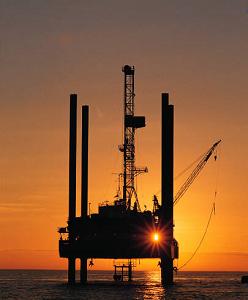
GAS SUPPLIERS’ CARTEL: NOT AN “OPEC,” BUT CARTEL ALL THE SAME
Publication: Eurasia Daily Monitor Volume: 4 Issue: 62
By:

With common trepidation substituting for a common policy, the West is awaiting the Gas-Exporting Countries’ Forum (GECF) meeting on April 9 in Doha, Qatar. It will be the group’s sixth meeting in almost as many years, but it is the first meeting that might result in a momentous decision to create a cartel-type organization that would control gas supplies to the West.
The GECF includes 15 member countries, among which Russia, Iran, Algeria, and Qatar are ranked as the largest gas exporters and/or estimated-reserve holders worldwide. From its first meeting in Tehran in 2001 until most recently, the group has disclaimed any intentions to control prices and volumes of gas supplies to Western consumer countries. This attitude is now changing, however, as the group’s four leading members are considering ways and means to form a cartel (Roman Kupchinsky, “The Saudi Arabia of Gas,” The National Interest online, March 22).
If created, such an organization would be dominated by Russia, which is the world’s largest reserve holder, producer, exporter, and transiter of gas. As a “new Saudi Arabia of gas,” Russia could shape a gas cartel’s behavior to an extent similar to Saudi Arabia’s dominant role in OPEC, though with different methods.
The widely used term “OPEC for Gas” is a misnomer, however. Oil for the most part is moving freely on the world’s oceans and is sold in a global market. Gas, however, moves largely through single-destination pipelines (at least as long as liquefaction remains limited) and is traded mostly in sub-regional and national markets. OPEC controls price levels by pushing them up or down, in short-term fluctuations; gas supply contracts are, as a rule, long-term.
A gas cartel’s main role would be one that OPEC by definition could not play in the case of oil: namely, determining the destinations and routes of energy supplies from producer to consumer countries, practically allocating certain markets to certain suppliers on a long-term basis. Such a cartel could, moreover, introduce quantitative ceilings to exports, so as to limit the drawdown on member countries’ reserves and maximize the price.
Russia would probably not agree to join a cartel if this would significantly restrict Russia’s latitude to determine export volumes, and almost certainly not join if it would involve ceding market share in Europe. By the same token, Russia would be strongly placed to set cartel rules for allocating gas markets by capitalizing on Russia’s far superior export potential, its entrenched dominance in European countries, and its control of major existing transit systems and routes to Europe.
Thus, Gazprom and the Kremlin could greatly profit economically and politically from a gas exporters’ cartel, if Moscow succeeds in managing such a cartel to protect its existing markets against competition. Some prognoses suggest that Russia would eagerly join or even initiate such a cartel for those reasons. Other prognoses suggest that Russia would not willingly join such a cartel, because it would involve coordinating production and exports and giving up some of Gazprom’s market share in Europe to competing suppliers from among cartel members. However, supply cartels can regulate competition through a variety of means, including division of markets into spheres of influence within the cartel.
Judging from President Vladimir Putin’s and other Russian officials’ statements, Russia is carefully considering at this time whether or how the proposed cartel could be brought into line with Russian policies. It was Putin who launched the idea of a gas cartel — an “alliance of gas-exporting countries” — in 2002, focusing on Central Asian countries at that time, albeit ignoring their interests, and triggering a first round of international debate on a mislabeled “OPEC for Gas.” There was no follow-up, however, and neither Russia nor any combination of gas-exporting countries felt strong enough to challenge the West at that time or later.
The situation has changed in some major ways recently, however. Western overall vulnerability to manipulations with energy supplies has increased rapidly, as has the energy demand from non-Western, fast-growing economies. The Kremlin is demonstrating with impunity the use of pressure and extortion against Western energy companies and interests. Western countries are late at best or failing at worst to devise common policies — such as direct access to eastern Caspian energy resources — that would ensure competitive markets against monopolies or cartel arrangements.




